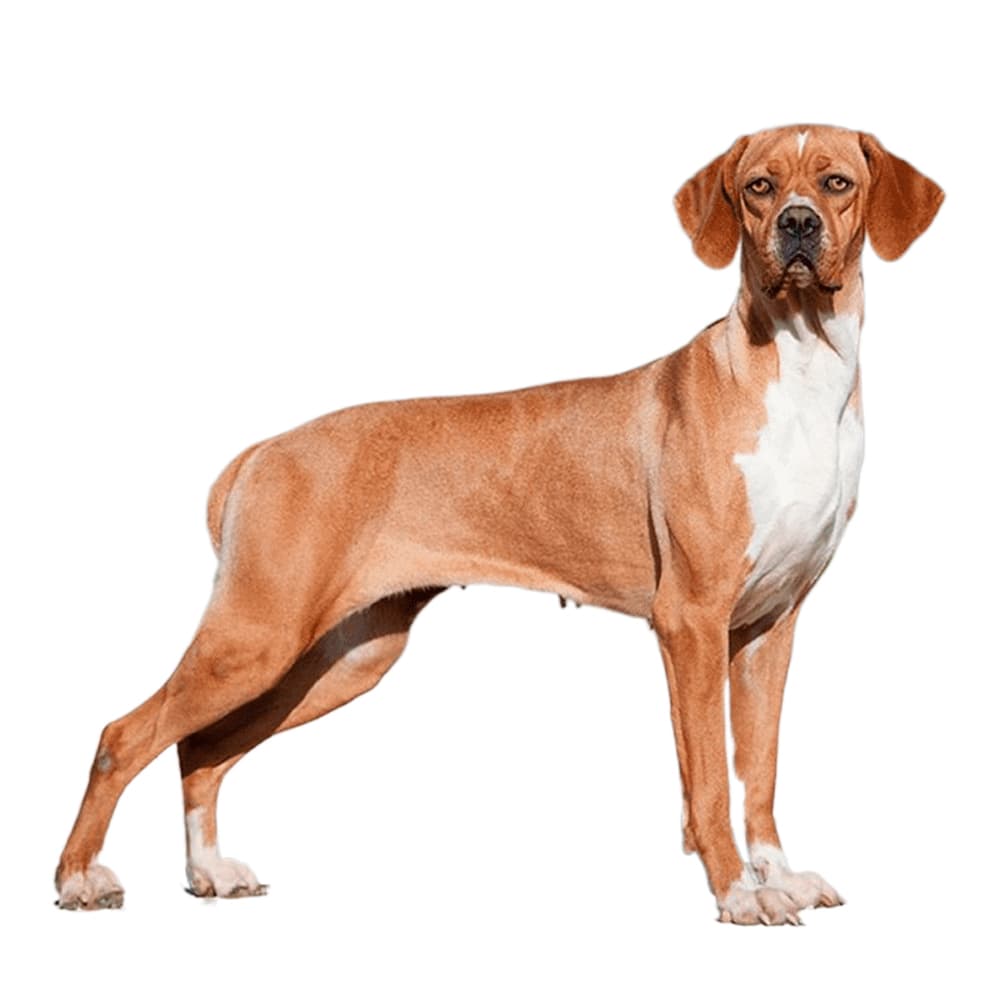Discover your dog's connection to this breed and 200+ others


Discover your dog's connection to this breed and 200+ others



The Portuguese Pointer, also known as Perdigueiro Português, is a breed of dog that hails from Portugal. It is a gun dog and is used for hunting. As the name suggests, it points out game for hunters, and is esteemed for its sharp scent detection and its agility. The Portuguese Pointer's roots stretch back hundreds of years. This breed was developed in the Iberian Peninsula and it's thought to be a direct descendant of the old Spanish and Italian pointing dogs from the 12th century, bred by royal falconers for hunting small game. The breed significantly influenced the development of the English Pointer, when some dogs were gifted to British wine merchants in the 18th century, as well as the Labrador Retriever.
Portuguese Pointers are generally healthy and robust, though like many breeds can suffer from hip and elbow dysplasia. It is also important to test them for autoimmune thyroiditis, hyperuricosoria, degenerative myelopathy, and progressive rod-cone degeneration. Genetic screening is recommended to assist veterinarians with diagnosis and proactive care, as well as help breeders identify affected and carrier dogs.
Portuguese Pointers are generally healthy and robust, though like many breeds can suffer from hip and elbow dysplasia. It is also important to test them for autoimmune thyroiditis, hyperuricosoria, degenerative myelopathy, and progressive rod-cone degeneration. Genetic screening is recommended to assist veterinarians with diagnosis and proactive care, as well as help breeders identify affected and carrier dogs.
A canine genetic lineage is a group of individuals or entire breeds that descended from common ancestors predating modern breed formation. Often these lineages are associated with a ‘type’ of dog with a unique historical working role and associated behaviors (e.g., herding, scent hunting, etc.).
The Pointer-Spaniel lineage encompasses both pointer and spaniel breeds. They were both bred for their specialized hunting abilities in Europe. Pointers locate game and freeze in a stance, called “pointing”, to indicate to their hunter that birds are close by. Spaniels were bred to find game in underbrush and retrieve it. Both pointer and spaniel breeds were bred to enhance their strong senses, trainability, and endurance as these are advantageous in a hunting partner. Spaniels and pointers are known for their strong work ethic, ability to work closely with humans and agility. These dogs’ ability to work closely with their hunters makes them an asset during a hunt because they follow direction well and know how their hunters want them to proceed.
Example breeds with ancestry from this lineage include English Cocker Spaniel, Irish Red Setter, and German Shorthaired Pointer.
Portuguese Pointers are considered one of the oldest gun dogs, with their lineage dating back to the 12th century.
They have a unique way of pointing out their game - they use their entire body, not just their muzzle.
Even though they're an old breed, Portuguese Pointers were only recognized by the American Kennel Club in 2015.
According to the UKC, the Portuguese name for this breed is “Perdigueiro Português,” derived from “perdigon,” the Portuguese word for “partridge.”
https://www.akc.org/dog-breeds/portuguese-pointer/ https://www.fci.be/en/nomenclature/PORTUGUESE-POINTING-DOG-187.html
https://www.ukcdogs.com/portuguese-pointer
Recommended by top vets with decades of experience
21 breeds
64 genetic health markers
50 genetic trait markers
